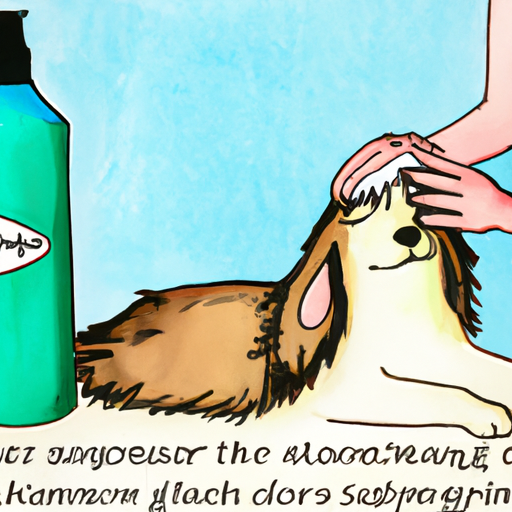If you’re a dog owner, nothing can be more heart-wrenching than seeing your furry friend in discomfort. One common issue many dogs face is itchy skin, which can be caused by a variety of factors such as allergies, parasites, or skin conditions. This guide will provide you with comprehensive advice on how to relieve itchy skin on dogs.
Table of Contents
- Understanding the Causes of Itchy Skin
- Home Remedies for Itchy Skin
- When to Seek Professional Help
- FAQs About Itchy Skin on Dogs
Key Takeaways
- Understanding the root cause of your dog’s itchy skin is crucial.
- Several home remedies can provide temporary relief.
- Seek professional help if home remedies don’t work or if your dog’s condition worsens.
Understanding the Causes of Itchy Skin
The first step towards relieving your dog’s itchiness is understanding what’s causing it. Itchy skin can be caused by a multitude of factors, such as:
- Allergies: Dogs can be allergic to a variety of substances, including certain types of food, pollen, mold, and even some fabrics.
- Parasites: Fleas, ticks, and mites can all cause itchiness. Regularly checking your dog for these pests can prevent this issue.
- Skin conditions: Conditions such as dermatitis, mange, or yeast infections can cause itchiness.
Determining the cause of your dog’s itchiness may require a visit to the vet. However, there are some initial steps you can take at home. For instance, if you suspect a food allergy, you can try changing your dog’s diet. If you think parasites may be the culprit, check your dog’s skin and fur for any signs of these pests.
Home Remedies for Itchy Skin
There are several home remedies you can use to relieve your dog’s itchiness temporarily. These include:
- Oatmeal Baths: Oatmeal has natural anti-inflammatory properties that can soothe itchy skin. To give your dog an oatmeal bath, blend a cup of oatmeal into a fine powder, mix it in warm water, and let your dog soak in it for about ten minutes.
- Coconut Oil: This oil is known for its moisturizing and antibacterial properties, making it excellent for relieving itchiness caused by dry skin or minor skin infections.
- Apple Cider Vinegar: Diluting apple cider vinegar in water and applying it to the affected area can help soothe itchiness caused by yeast infections or other skin conditions.
Remember, these remedies provide temporary relief, and should not be used as a substitute for professional help if your dog’s condition is severe or persists.
When to Seek Professional Help
If your dog’s itchiness persists, worsens, or is accompanied by other symptoms such as redness, swelling, or loss of fur, it’s time to seek professional help. Your vet can provide a proper diagnosis and treatment plan, which may include medication, dietary changes, or specialized shampoos.
In some cases, your vet may refer you to a veterinary dermatologist. These specialists can provide more advanced treatments, such as allergy testing and immunotherapy. For more information about when to seek professional help, check out this article on OneTopDog.
FAQs About Itchy Skin on Dogs
Q: Can I use human products to relieve my dog’s itchy skin?
A: While some human products may be safe for dogs, others can be harmful. Always consult your vet before using any human product on your dog.
Q: How can I prevent my dog from getting itchy skin in the first place?
A: Regular grooming, a balanced diet, and keeping your dog’s living environment clean can all help prevent itchy skin. For more tips on dog care and grooming, visit OneTopDog’s grooming guide.
Q: My dog’s itchiness gets worse during certain seasons. Why is this?
A: Your dog may have seasonal allergies, similar to hay fever in humans. If you notice this pattern, consult your vet for advice on managing these allergies.
In conclusion, while itchy skin can be a nuisance for your dog, there are several steps you can take to relieve it. Understanding the root cause, trying home remedies, and seeking professional help when necessary are all crucial steps in managing your dog’s condition. For more information on dog health and wellness, visit OneTopDog’s health guide.



